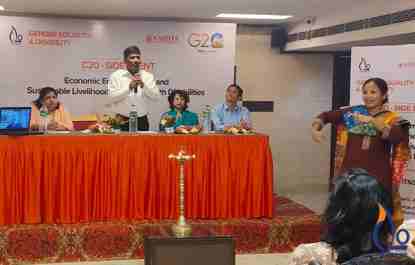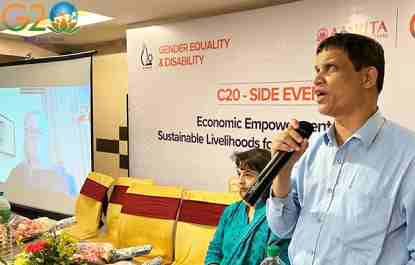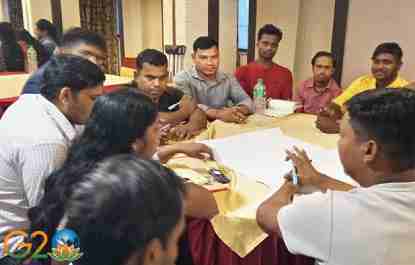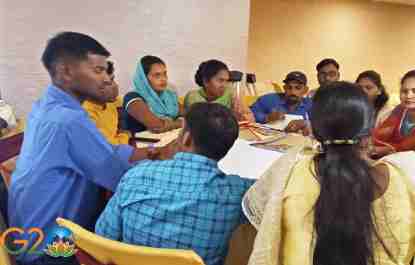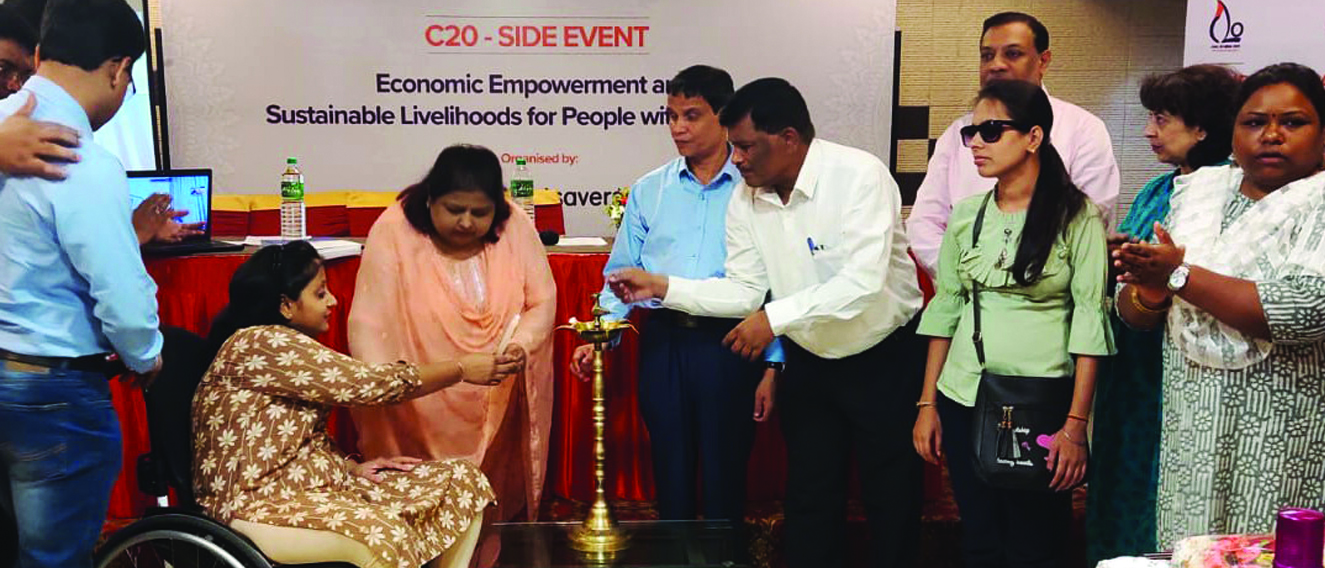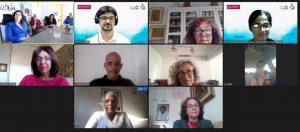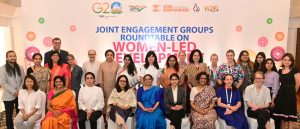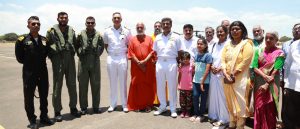There was a total of 6 subjects discussed in the program with special focus on gender equality and disability around economic empowerment and sustainable livelihood:
I. Disability based segregated data
II. Social Security Schemes
III. Education and Training
IV. Employment and Enterprise
V. Livelihood and employment of a Persons with Disabilities special emphasis on Women with Disabilities.
VI. Intersectionality of disabilities and Gender
Two major challenges faced by OPDs which are also being provided as policy recommendations are given below for further considerations:
i. Establishment of One Stop Center for all the Social Security Schemes related to PwDs
ii. Widespread and compulsory awareness of all government officials on disability related declarations and Rights of Persons with Disability Act 2016
The suggested first recommendation is being dealt with manually and the process is time and resource consuming. As the facilitator/ OPD leader has to assist the PwD in places and guide over phone where ever required. At times, a PwD has to bear loss of a day’s pay, if they are engaged in any kind of daily basis work. Further, it has been observed that the PwDs stop receiving pensions all of a sudden due to internal reasons which doesn’t start automatically once the issue is resolved. This too takes a toll on mental health and adds to physical difficulties as the pension money serves as a basic sustenance source for them.
Talking about awareness among government officials, it is apparent that the relation and trust building takes time. The OPD leaders keep visiting and orienting them which again is a time and resource consuming activity and as soon as they are ready to deliver for the benefits of PwDs, they usually get transferred.
In case they are well oriented beforehand, their support can be expected from their day of joining.
These recommendations are from the field, extremely doable and related to the implementation of the policy and act. If considered, these will bridge the gap in implementation to greater extent.
About 16% of the world population live with some form of disability as a result of mental, physical or sensory impairment. Despite significant advancement made to identify and recognize Persons with Disabilities, their data representation remains weak.
• A living Disability Disaggregated Data system in all countries is key to disability inclusive policy planning and performance monitoring. G20 commitment for developing strong & agile disability data base can support disability inclusive SDG actions.
• Research and evidence across continents have proved Persons with Disabilities across the world are more likely to live in poverty, due to persistent discrimination and structural barriers to socio-economic, health and educational security and upward mobility. This requires more urgent and organized action with global partnerships for instance the United Nations Disability Strategy (UNDIS) which can be supported by the G 20 countries. The policy establishes the highest levels of commitment and a vision for the United Nations system on disability inclusion It includes a system-wide policy, and an accountability framework along with other implementation modalities.
• For accelerating progress on SDGs, G20 can take action to create adaptive Universal Framework for Social Protection of Persons with Disabilities given their vulnerability to poverty and its induced consequences.
• A Global Framework on Assistive Devices & Technology inside the ambit of Universal Health Coverage can be prioritized within G20 principle on quality infrastructure development to forge business innovations, research in the areas of assistive aids & technology & promote tax free regime associated with disability assisting products.
• Ensure affirmative actions, easy access and participation of Children and Adults with Disabilities to access quality education & training to represent in the digital economy and employment market. International cooperation must encourage education, research and training exchange programmes for students/youths with disabilities to prepare themselves for the STEM industries.
• G20 commitments are required to encourage Governments and private sectors for encouraging participation of persons with disabilities in labour market and entrepreneurship space.
